#EndSARS: What's been happening in Nigeria since the protests began?
- Published
- comments
#EndSARS: What's been happening in Nigeria since the protests began?
Lots of people right across the world have been speaking out about what's been going on in Nigeria over the last few weeks.
Thousands of Nigerians recently took part in protests across the West African country and there were also marches in cities around the world including London, Toronto, Nairobi and Cologne.
Protestors were calling for the government to disband one of its most controversial police units known as the Special Anti-Robbery Squad, or Sars.
Sars has repeatedly been accused of abusing its power and mistreating Nigerian citizens, in particular young men.
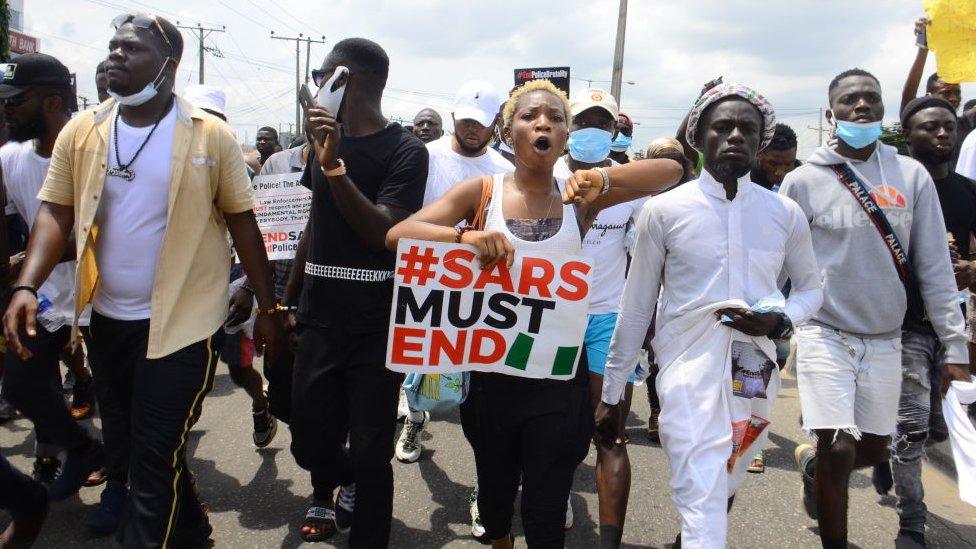
Young people across Nigeria took part in protests calling for an end to the country's Special Anti-Robbery Squad
What was the Nigerian government's response to the protests?
The Nigerian government said Sars had been disbanded shortly after protests began, which means it no longer exists.
However, lots of people continued to protest after the announcement.
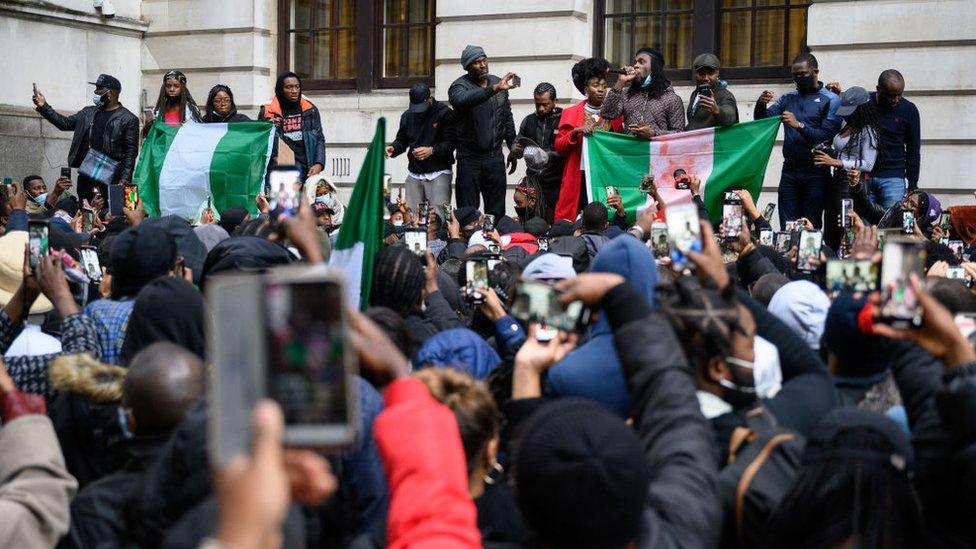
Protests were also held London
Many said they wanted wider police reform and felt more needed to be done to bring about long-lasting change.
Some people also expressed frustrations as the officers who were originally part of Sars were redeployed. This means they'll still be working in other areas of the Nigerian police force.
What happened at Lekki toll gate?
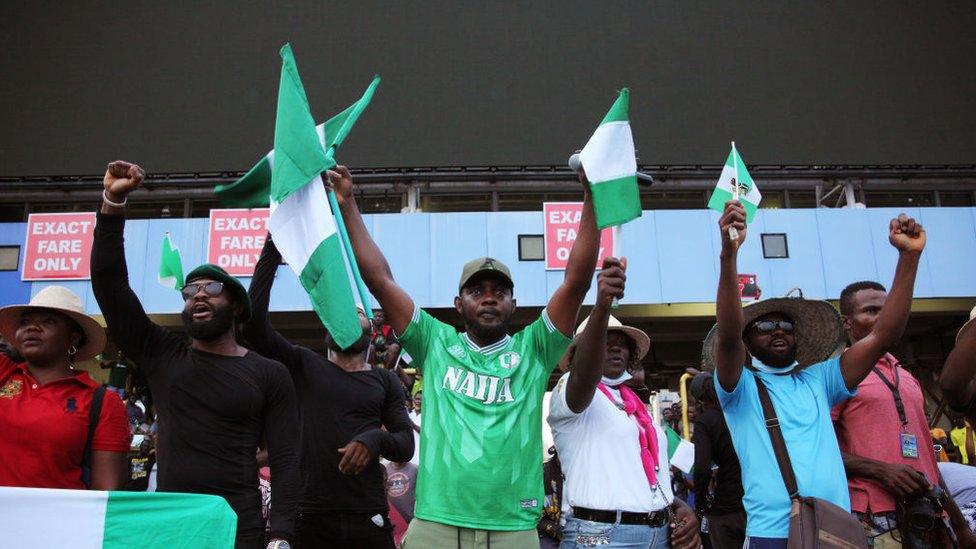
Lots of people gathered at the Lekki toll gate on 20 October
Many of the protests in Nigeria calling for an end to Sars were peaceful, however, some took a negative turn, with people destroying property and looting.
Lagos' governor Babajide Sanwo-Olu announced a 24-hour curfew in his state on the 20 October to help limit the unrest.
He said people should not be out on the streets for that period of time "except essential service workers and first responders".
All schools in Lagos were also ordered to shut.
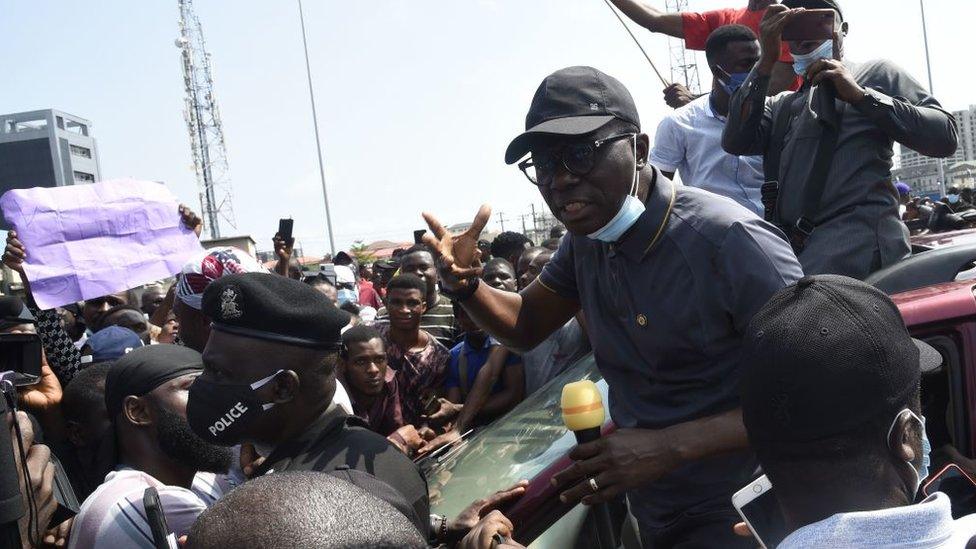
Lagos' governor Babajide Sanwo-Olu announced a 24-hour curfew in the state before the shooting happened
However, lots of people chose not to follow the rules around the curfew and to instead continue with the protests. Many took part in peaceful sit-ins, including one which was held in the city of Lekki in Lagos.
However, on the evening of the 20 October, there were reports of shootings at Lekki's toll gate where lots of protestors had gathered.
One young Nigerian shares her SARS story
Many eyewitnesses said it was members of the Nigerian army that had carried out the shooting, although the country's military and authorities have denied this.
Several people were reported to have been injured during the events and at least 12 are said to have lost their lives according to the human rights charity, Amnesty International.
What has happened since the events in Lekki?
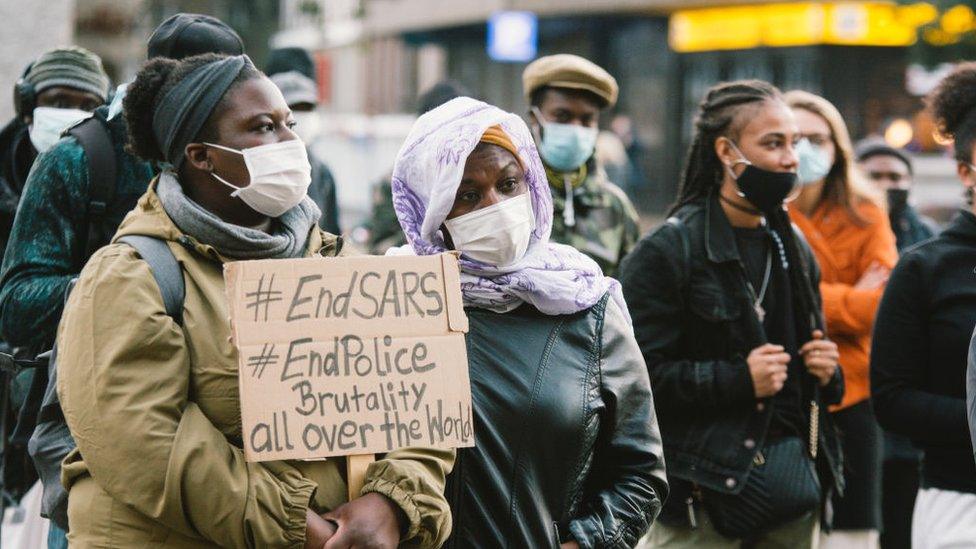
Protests also took place in Cologne in Germany
So far, no one has been held responsible for what happened at Lekki toll gate. Amnesty International accused the Nigerian authorities of attempting to "cover up" the events that took place on that day,
"The Nigerian authorities still have many questions to answer: who ordered the use of lethal force on peaceful protesters?" said Osai Ojigho, Country Director of Amnesty International.
"The initial denials of the involvement of soldiers in the shooting was followed by the shameful denial of the loss of lives as a result of the military's attack against the protests."
The Nigerian army has said the state government in Lagos had enlisted its soldiers to help maintain order on the streets during the protests, although it initially denied that any of its members were present.
However, it has continued to deny any involvement in the shootings.
What about Sars?
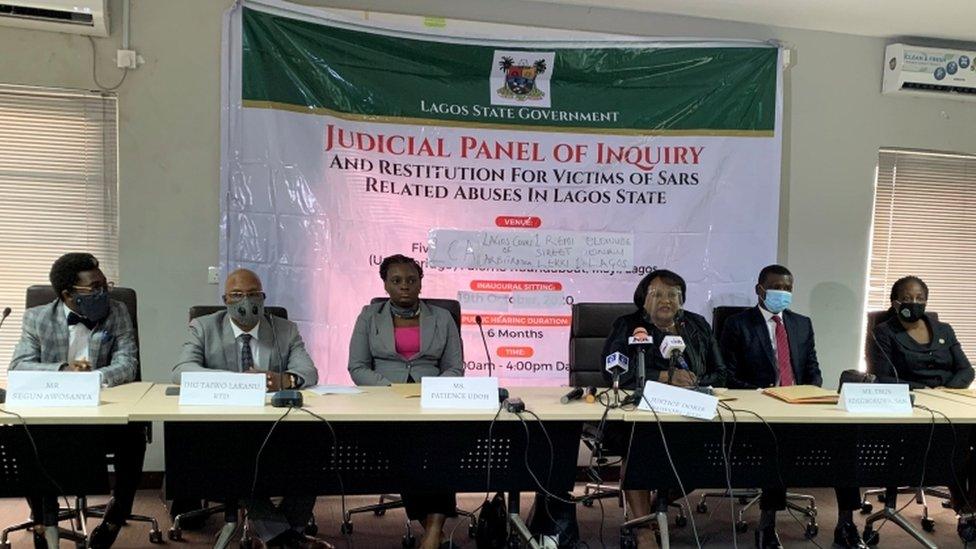
A judicial panel was set up in Lagos to look into instances of police brutality in the state
Following the demands of protestors, a panel was set up in Lagos to look into incidents of police brutality in the state.
The state's governor said the panel, which is independent of the government, will also look into the events that took place at Lekki toll gate on 20 October.
Lagos was the first of Nigeria's 36 states to set up a judicial panel to look into instances of police abuse, and panels have also been introduced in many other states in the country including Ogun and Ondo.
The International Criminal Court (ICC) is an international body that investigates serious crimes which affect the international community as a whole. It told the BBC it would "analyse materials" it has received relating to the events that took place in Nigeria last month following the protests.
Advice if you're upset by the news
Remember if you are upset by this story, or by anything you see in the news, there's lots of help and advice here.
